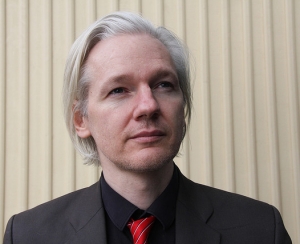High Court frees Wikileaks' Assange on bail

A High Court judge has freed Wikileaks editor Julian Assange on bail. Assange is to be released as soon as a £200,000 security can be lodged by his defence team.
Assange could be released imminently, his solicitor Mark Stephens said in a statement outside the Royal Courts of Justice on Thursday.
"Our main focus is delight and joy in the fact that [Assange] is going to be released in the very foreseeable future," Stephens said.

Wikileaks founder Julian Assange has been freed on bail. Photo credit: Espenmoe on Flickr
Assange is wanted for questioning by Swedish authorities after allegations of rape and sexual molestation in August this year. Swedish authorities have issued an European Arrest Warrant that calls for Assange to be extradited.
Justice Duncan Ouseley granted Assange conditional bail on Thursday. One of the conditions is that Assange must report to Beccles police station, which is close to Ellingham Hall in Suffolk, where Assange will reside until his next court appearance. Assange must report between 2pm and 5pm daily, except on public and bank holidays over the Christmas and New Year period, when police will call on him.
Where he can go on the Ellingham Hall estate will be strictly delineated, and Assage will wear an electronic tag. He must remain within these limits from 10am to 2pm, and 10pm to 2am, every day until his next court appearance, which is likely to be early next year.
Assange's ability to report to the police station may be hampered by impending snow and freezing conditions, and Justice Ouseley said he does "have a concern about what will happen with bad weather requirements".
The judge said that the £200,000 security, which is currently in Stephens' account, can be sent via wire transfer to the Crown Prosecution Service immediately. Assange's release was not delayed by sureties, which must also be given. The sureties will be provided at various local police stations and at courts by a number of supporters.
Justice Ouseley was concerned that some of Assange's supporters could have offered sureties in support of concepts of civil rights and freedom of speech, rather than after judging Assange's character and likelihood of flight.
"The point that troubles me most is whether there are supporters who have regard for [Assange's] work for Wikileaks as something which would be impaired by the extradition process, and who would present [flight by Assange] as a righteous and justified act," Justice Ouseley said.
As a result, the judge ordered that certain people who had offered sureties should have their amounts reduced, while the number of "eminent" people offering surety — such as Nobel prize-winning scientist Sir John Sulston — should be increased. Seven additional people will offer surety.
Assange was granted bail on Tuesday by City of Westminster chief magistrate Howard Riddle, but the decision was appealed by the Crown Prosecution Service (CPS). Journalist and Assange supporter John Pilger told journalists at the court that the CPS appeal against Riddle's decision had been "a waste of taxpayers' money".
"It's very good news [Assange has been bailed], but it could have happened a long time ago," Pilger said, who added that the United States may also seek Assange's extradition. Wikileaks is in the process of leaking hundreds of thousands of sensitive US diplomatic cables.